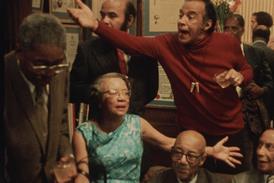Winchester Entertainment chief Gary Smith (pictured) has been cleared by UK watchdog the Financial Services Authority (FSA) following an investigation into his sale of shares on the eve of a profits warning in February.
The FSA told the publicly-listed company that it had found no evidence of insider dealing or market abuse and that no further action would be taken.
Smith sold 400,000 shares in January for $837,400, 13 days before the company warned full-year results would be below those of the previous year.
Smith has said that he had no prior knowledge that the company would need to warn on revenues until a board meeting on Monday and that he agreed on the sale with his board.
Winchester, which recently appointed highly-regarded ex-ITV chairman Leslie Hill as chairman, also announced a pre-tax loss for the last financial year of $13.1m (£8.3m), compared to a profit of $5m (£3.2m) the year before. The loss was greater than Winchester's predictions of a loss of up to $9.4m (£6m) in May, but the company said it was in dispute over $4.4m (£2.8m) relating to a loan to a German tax fund on Last Orders, the UK drama starring Michael Caine.
"The company has filed a legal claim against the debtor," Hill said. "The directors have been advised by the company's lawyers that the full amount is recoverable." However there can be no absolute certainty in this regard.
Winchester was also hit by start-up costs at its UK distribution business and expansion costs at it Los Angeles arm. The company had expected two films to earn production fees of at least $1m in aggregate, but was hit by delays.
But the company's US activities saw Harv The Barbarian, a $28 million comedy which Winchester is co-producing with Wind Dancer Films, secure agreed pre-sales worth approximately $22m, including a deal with Dreamworks SKG in North and South America. The sales will be booked as revenue on delivery, which is expected during the year ended 31 March 2004. Winchester will also earn a production fee on the film of approximately 3% of the budget, which will be receivable during the current financial year.
Hill said that the company was unlikely to return to profit this year. "The company's current back catalogue of films is small and does not produce significant income," he said. "Therefore, it is unlikely that the company will return to profitability in the current year. However the board expects a return to profit in the year to 31 March 2004."



















No comments yet